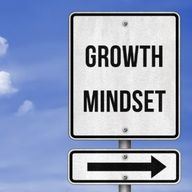Pause, reflect and act

Learning & Development
163 week ago — 3 min read
Your emotional maturity stems from your ability to increase the gap between your emotional impulse and your action. The more you can distance your responses from your emotional impulses, the more mature you are. Unfortunately, your emotional maturity is not some permanent state that you attain and remain there for all time in the future. It is a dynamic state. With constant practice, you can enhance your emotional maturity by creating distance between your impulses and actions. However, without deliberate practice, you can also regress in your emotional maturity.
Your emotional maturity stems from your ability to increase the gap between your emotional impulse and your action. The more you can distance your responses from your emotional impulses, the more mature you are.
I have a simple mental model to help create the gap between my emotional impulses and my actions. I call it the Traffic Light Model of emotion management.
Red Light: I take a pause, or I stop. Even if it is just for a couple of minutes, taking a pause allows me to calm down and manage my inner turmoil.
Amber Light: As I slow down, I can evaluate my situation and figure out the choices I have to deal with the situation at hand and also the consequences associated with choices.
Green Light: I pick up the best choice and try it out.
The traffic signal model is a visual, process-oriented way to manage my emotional state - Pause, Reflect and only then Act.
Also read: Instead of trying to find your passion, develop it
To explore business opportunities, link with me by clicking on the 'Connect' button on my eBiz Card.
Image source: Unsplash
Article source: https://ownmygrowth.com/2021/10/16/emotional-maturity/
Disclaimer: The views and opinions expressed in this article are those of the author and do not necessarily reflect the views, official policy, or position of GlobalLinker.
Posted by
Pramod VeturiGlobal leader with experience managing core banking functions with proven track record of delivering business transformation and growth.
Network with SMEs mentioned in this article
View Pramod 's profile
Most read this week














Comments (1)
Please login or Register to join the discussion